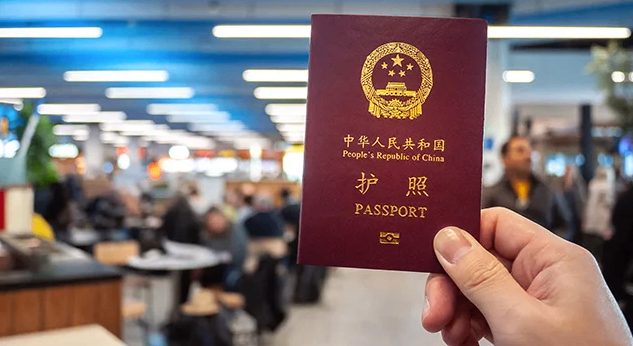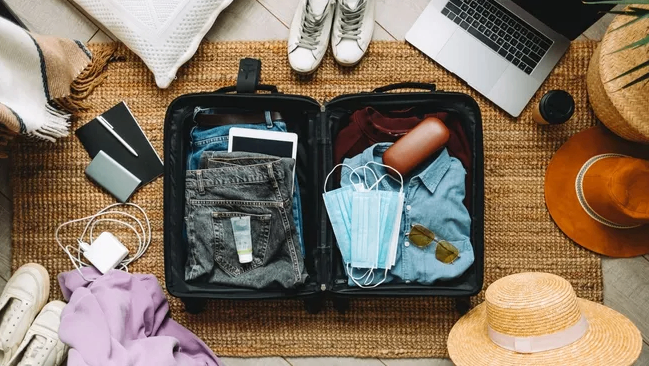



 ${ lang === 'zh' ? '中文': 'ENG' }
${ lang === 'zh' ? '中文': 'ENG' }




 ${ lang === 'zh' ? '中文': 'ENG' }
${ lang === 'zh' ? '中文': 'ENG' }
 ${formatTime('2025-02-25 14:04:25', 2)} ${formatTime('2025-02-25 14:04:25', 3)}, ${formatTime('2025-02-25 14:04:25', 1)}
${formatTime('2025-02-25 14:04:25', 2)} ${formatTime('2025-02-25 14:04:25', 3)}, ${formatTime('2025-02-25 14:04:25', 1)}

Pack Essentials for Comfort and Safety
Traveling to China for business can be both exhilarating and overwhelming, especially if it's your first time. Understanding the country's culture and customs will make your experience smoother and help you avoid common pitfalls. Here are some key tips to prepare for a successful business trip to China.

1. Seek Guidance from Colleagues with Experience
If you have colleagues who have traveled to China for business, take the opportunity to meet with them before your trip. Their first-hand insights can provide valuable knowledge about local business practices, expectations, and nuances that will help you navigate your visit with confidence.

2. Prepare Thoughtful, Yet Modest Gifts
In China, exchanging gifts during a business meeting is a common practice, particularly when one party has traveled internationally. Choose something thoughtful, unique, and representative of where you are from, but avoid overly extravagant items. Gifts that are easy to pack are also ideal.

3. Ensure Your Passport and Business Visa Are Ready
To enter China for business, you will need a valid business visa, which requires an invitation letter from an authorized party in China. Ensure your passport has at least six months' validity left. You can streamline the visa process by working with a visa service, saving you multiple trips to the consulate.

4. Factor in Time to Recover from the Long Journey
If you're traveling from the United States, be prepared for a lengthy flight. Make sure you leave enough time to recover from jet lag and acclimate before any important meetings or negotiations. Don’t schedule back-to-back meetings on your arrival day to avoid feeling rushed or exhausted.

5. Pack Essentials for Comfort and Safety
Be mindful of the air quality in major cities like Beijing. Bring a pollution mask and eye drops to stay comfortable. Also, pack power converters to charge your devices, and consider bringing medications for stomach issues in case you try unfamiliar foods. Being prepared for potential challenges will help you feel more at ease.

6. Understand Regional Differences Across China
China is vast, and its cultural norms, dialects, and customs can vary significantly across regions. Research the specific area you will be visiting so you can better understand local expectations, and avoid assumptions based on generalized knowledge of the country.

7. Notify Your Bank and Prepare for Currency Exchange
Let your bank know about your travel plans to prevent your credit cards from being blocked. While larger businesses may accept credit cards, smaller shops and markets often prefer cash. It’s wise to familiarize yourself with currency exchange options and keep cash on hand, especially if you plan to shop or haggle for souvenirs.

8. Be Patient with the Pace of Business Negotiations
Expect business negotiations in China to take time. Relationships and trust are prioritized over quick decisions, so don’t be surprised if things take longer than expected. Understand that responses like "no" may not always mean "no," and "yes" may not always mean immediate agreement.

9. Show Respect and Punctuality at All Times
Respect and punctuality are paramount in Chinese business culture. Arrive on time for all meetings, and be mindful of your gestures. For example, wait for your host to initiate a handshake or other forms of greeting. Always accept food offerings with gratitude and use both hands when receiving gifts or items.

10. Schedule Meetings Well in Advance
While it’s common for Chinese businesspeople to be understanding of foreign customs, scheduling your meetings well in advance—especially during peak months like April, May, June, September, and October—is key to ensuring availability. Being proactive with your appointments shows respect for their time.

11. Let Your Host Choose the Menu During Business Meals
Business meals in China are often held in private dining rooms of restaurants, where your host will typically order the food. It’s considered polite to allow them to choose dishes. Meals can be extensive, with a wide variety of dishes, and the dining experience is a chance to bond over shared food and conversation.

12. Let the Host Pay for Meals, But Be Polite About It
In China, the host traditionally pays for business meals. If you insist on paying, do so before the meal to avoid an awkward situation. Expect a friendly "fight" over the bill, which is part of the process. Tipping in restaurants is not common, so don’t feel pressured to offer tips.
Lee, R. (n.d.). Essential tips for a successful business trip to China. Retrieved February 25, 2025https://www.swiftpassportservices.com/blog/9-travel-china-business/